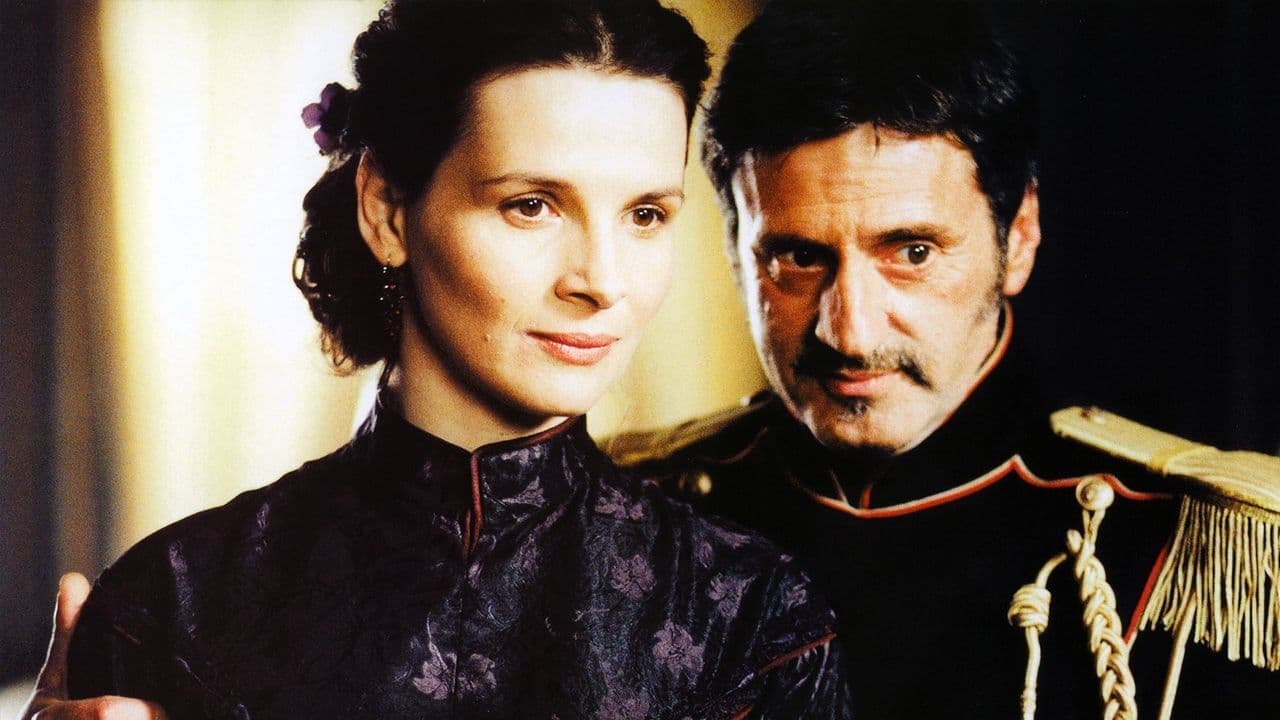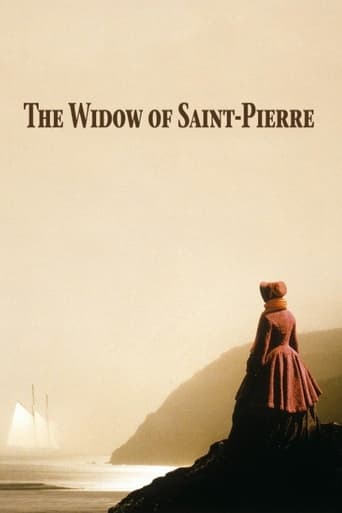

This movie takes place in 1849 on St. Pierre. It is about a murderer who committed a murder in a drunken state not really knowing what he was doing. Such a person might get 8 years or something these days. But you have to remember that in 1848 you were sent to Australia in chains if you stole a loaf of bread. The wife of the captain in charge of holding the condemned man feels he should be rehabilitated and let loose. The whole movie becomes a treatise on unfair penal sentences.My problem with the movie is not that I think the man deserved to be executed, but rather the one sided manipulative propaganda approach used by the director.The movie degenerates into endless obvious manipulation. Every facial expression in every crowd is controlled to show the appropriate emotion. There are constant cuts to the ship bringing the guillotine. Suddenly everyone loves this guy no one will be the executioner etc... It is not believable.A huge part of the problem is that the actor playing the condemned (Emir Kusturica) is a disheveled large hulking unattractive middle aged cave man who just doesn't work in the role--negative charisma? Kusturica's chemistry is just wrong (maybe bad acting?)--for some reason there is absolutely nothing sympathetic about him walking around with a plaintive look. A younger more handsome man who could act could very well have made the movie work.The Captain and his wife are Gods descended from some morally superior heaven we should all aspire to.The whole message thing is just too heavy handed. The part in the beginning where they throw rocks at the prisoners is more like real human nature. This movie is terrible which is a pity.I liked Patrice La Count's movie-- M. Hire-- and decided to watch more of his films unfortunately the others are also too much socially relevant treatises but this is by the far the worst one. REDICULE at least had large parts of it that were entertaining this film had nothing of the sort---unrelenting politically correct hammering against the death penalty etc etc etc...It is a pity because the actors and Le Conte bring a lot to this--however no doubt about it Kusturica ruins it. He should stick to directing.DO NOT RECOMMEND!
... View MoreThis movie is just a propaganda piece against the death penalty. Apparently a good one, since most people bought into its nonsense.I wanted to see this film because of its St. Pierre setting. Few in either America or France know that in 1849 as well as in 2012 there is a French colony in North America. The St. Pierre and Miquelin Islands just south of Newfoundland. And yes, most of the movie was filmed there.Anyway, one night one of the citizens is sitting in his home by candlelight, eating his soup, minding his own business. In a few moments he'll have his guts carved out by two men to settle an argument as to whether the victim was "fat" or "large." Such a reason to slaughter an innocent man! When one of the murderers is condemned to death, the execution is postponed in order to get a guillotine and an executioner. The wife of the Captain adopts the condemned murderer as her pet project. In the short-run, her meddling will permit the convict to become a local hero, when he saves a woman's life; but in the long-run her determined self righteous actions and that of her husband will result in the husband facing a firing squad --- with righteous indignation, of course -- and the convict having his head chopped off.Juliette Binoche then becomes a self righteous widow. Loaded with indignation, she vows to be the faithful widow until her death -- or until her next pet project comes along. Gag me!The story turns common sense 180 degrees on its head, yet many viewers loved this mess.
... View MoreBeinvenue a St Piere, a French outpost off the Eastern shore of Canada. On this small island, Ariel Neel Auguste (Emir Kusturica) awaits Madame La Guillotine for having killed a man in a drunken brawl. A burly brute of a man, Ariel's quick thinking saves an islander from certain death when a house being moved slides down a hill.Ariel's charm wins him the regard of Madame Pauline La (Juliette Binoche), wife of Captain Jean (Daniel Auteuil), the commander of the island's garrison. Islanders are divided on the issue of execution; most would like to save Ariel. Madame La sends Ariel, now a trusted prisoner, on a mission in a small dinghy. The idea is that Ariel will escape into nearby British or American territory, but Ariel true to his parole faithfully returns and even helps bring Madame La Guillotine ashore.Yugoslavian born Emir Kusturica plays the French islander the commoner Ariel Neel Auguste with a sensitive gentility, persuasively tough and docile, hardheaded and obedient.As Ariel waits execution, tables turn on Captain Jean. He's ordered home to Metroplitain France. Officially he's a guest of the fleet Admiral. Actually with political unrest at home Captain Jean faces the firing squad. He too is told of the many opportunities to escape, but steadfastly follows orders right up to his execution by firing squad.Daniel Auteuil plays the tough-fisted French Captain with the practised arrogance of an officer used to getting his way.I'm not entirely sure a motion picture though full of violence or threats of violence would be fully understood by an American audience. The parallelism between Captain Jean and the commoner Ariel is far too delicate for audiences which are addicted to shoot-em up high speed police chase lines.
... View MoreThis is a wonderful film. It captures characters in a profound dilemma and shows a study of the bureaucratic mind that will crush a truly good man for the ends of both personal advancement and political correctness. It is as much a statement on the evils of mindless bureaucracy as any I have seen. It is also a fine story of personal redemption and the decency that can allow it to thrive. I could not but think of such works as Dostoyevsky's Crime and Punishment or such films as Schindler's List, because I am fascinated by the portrayals of seemingly ordinary people put in situations of fundamental moral choice.
... View More